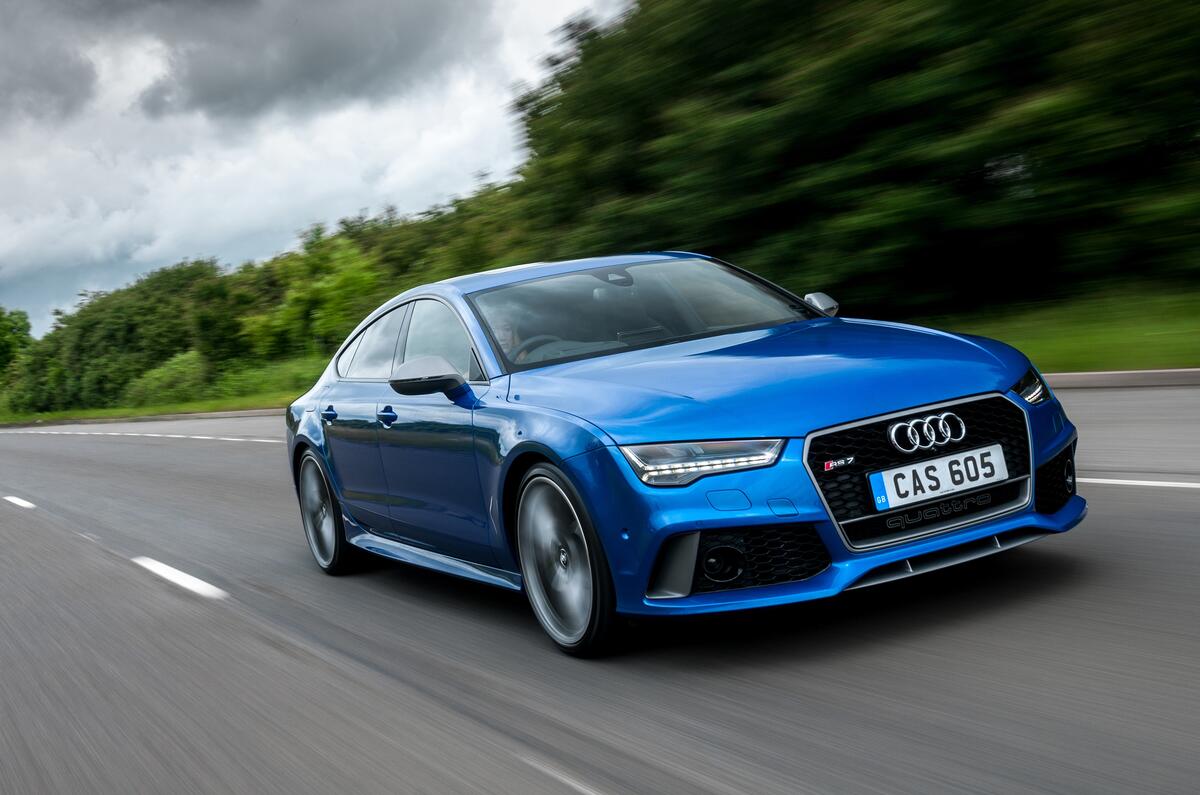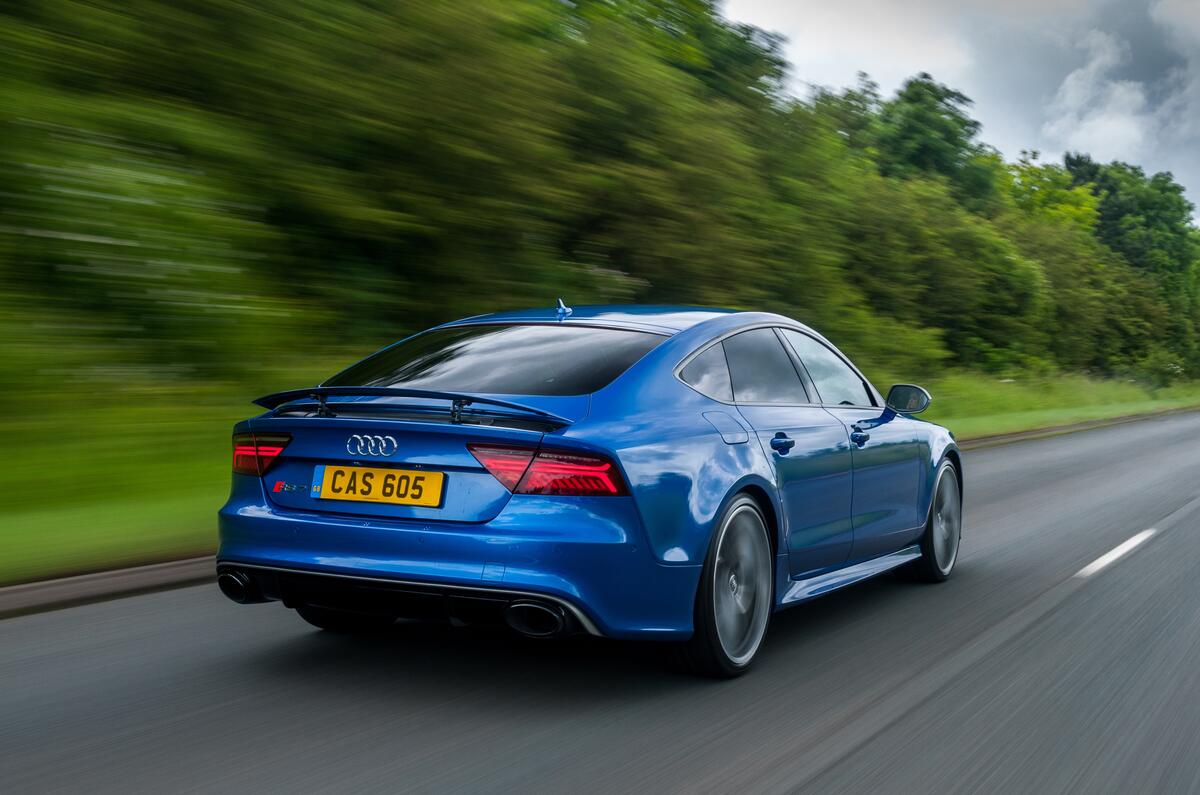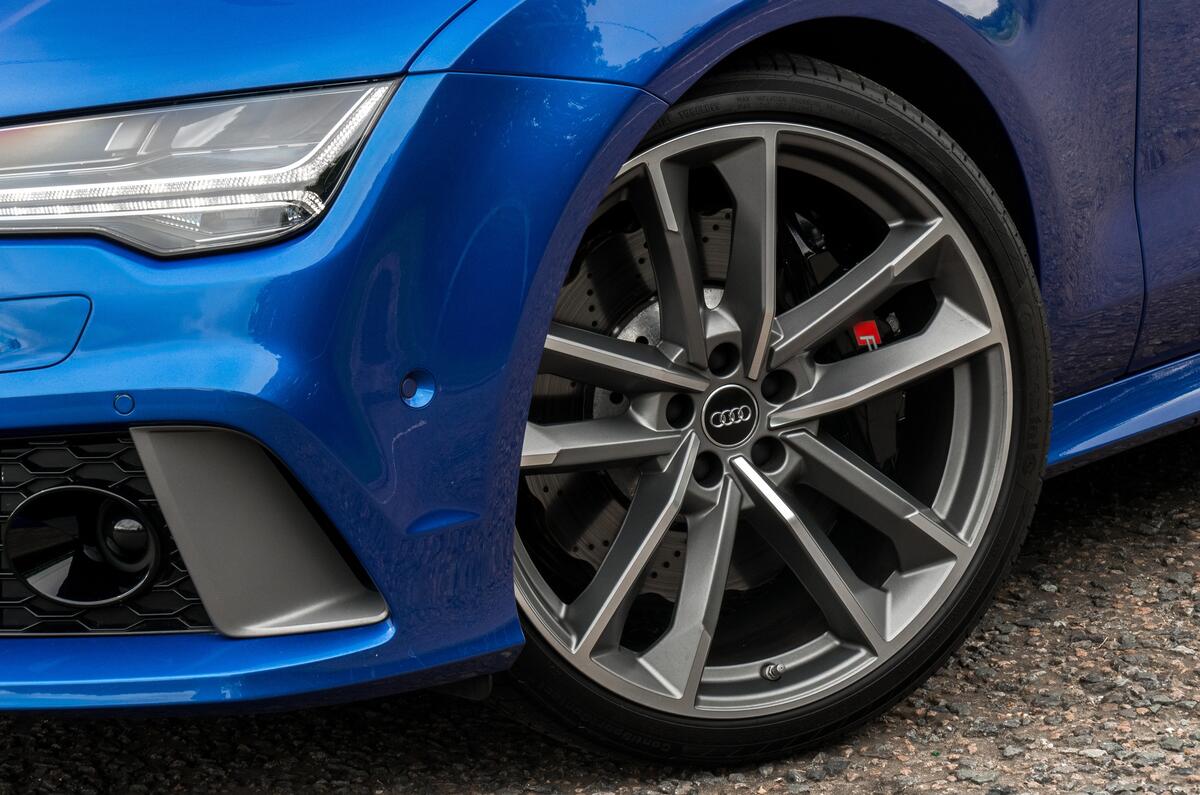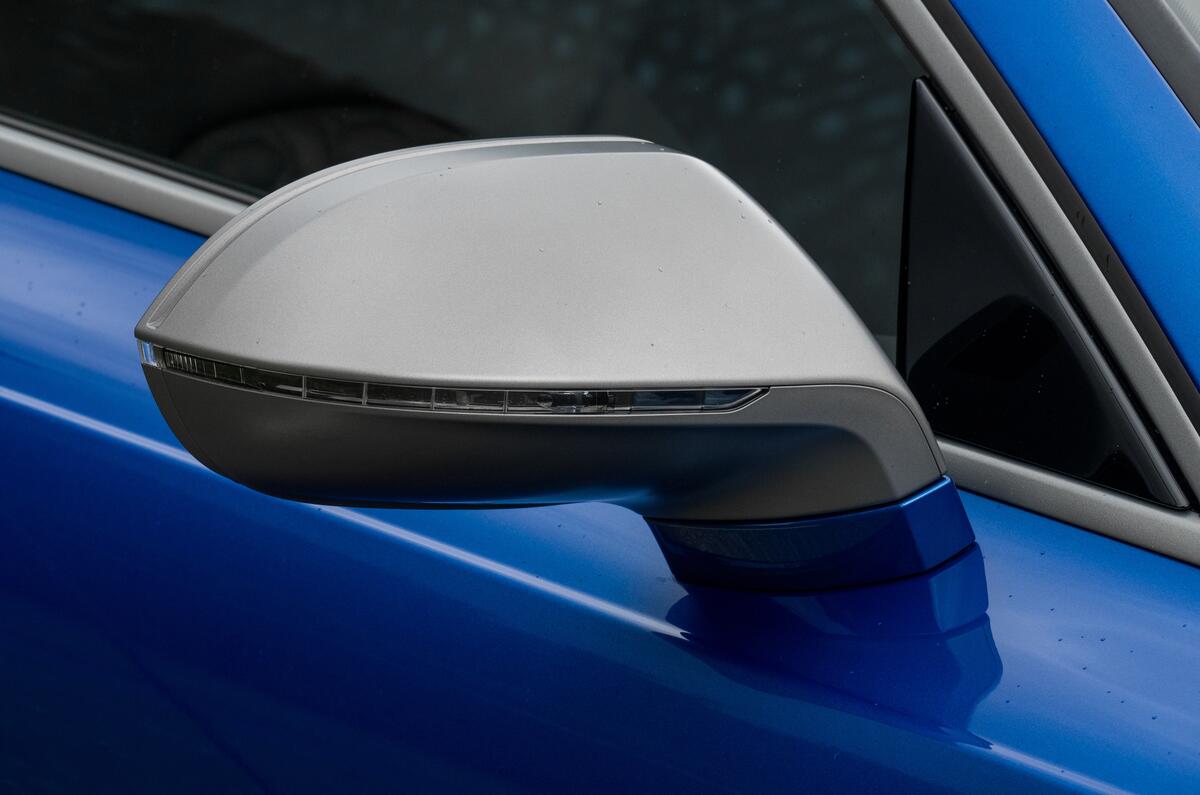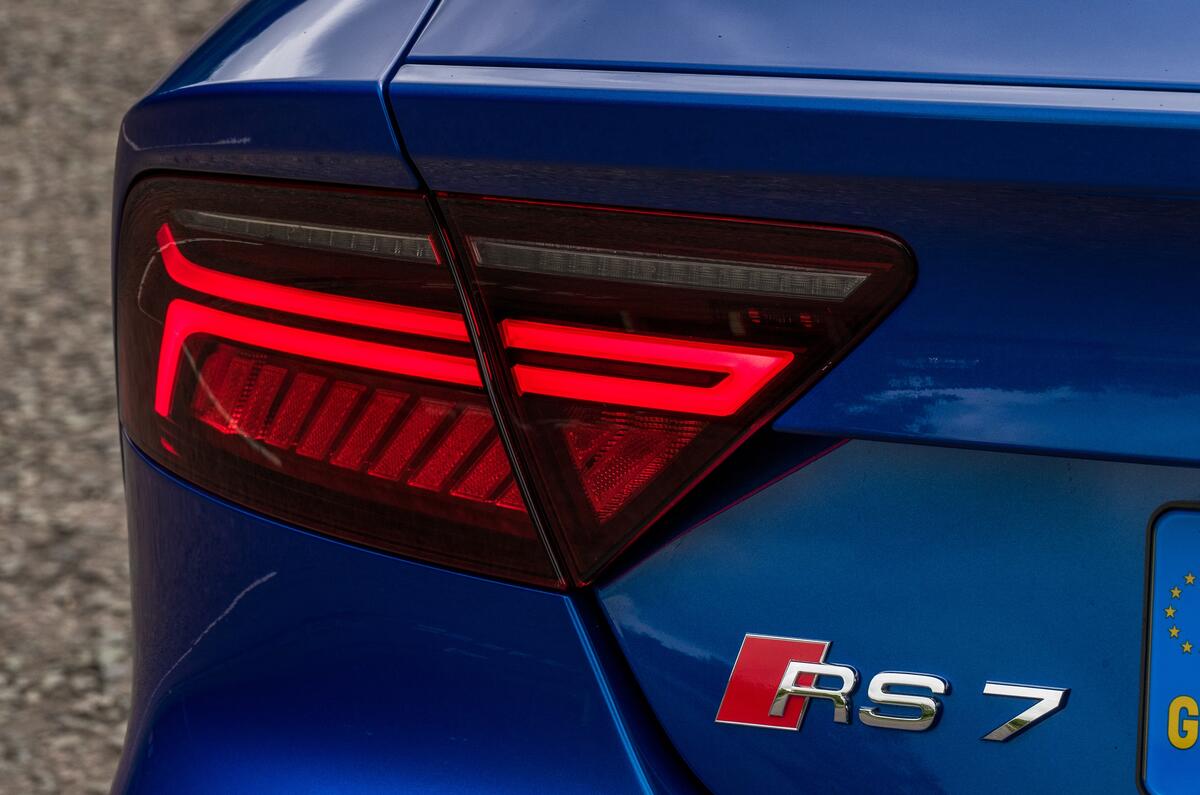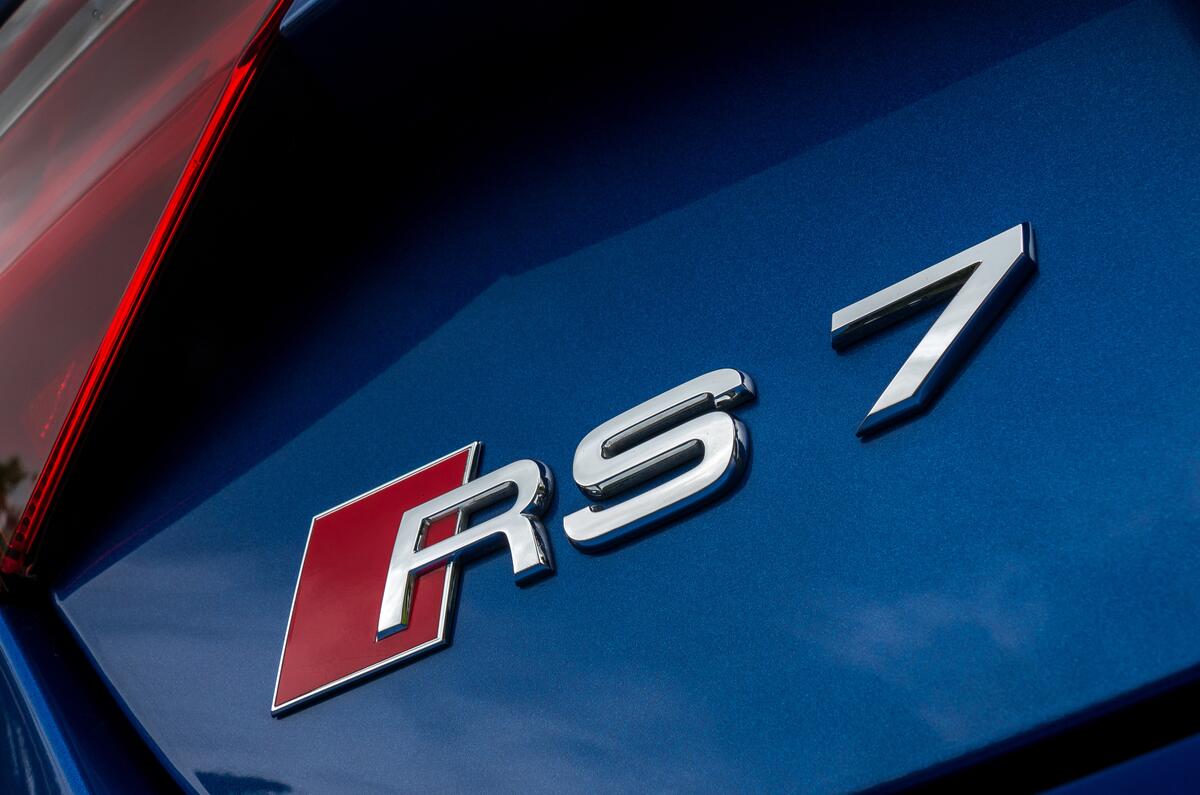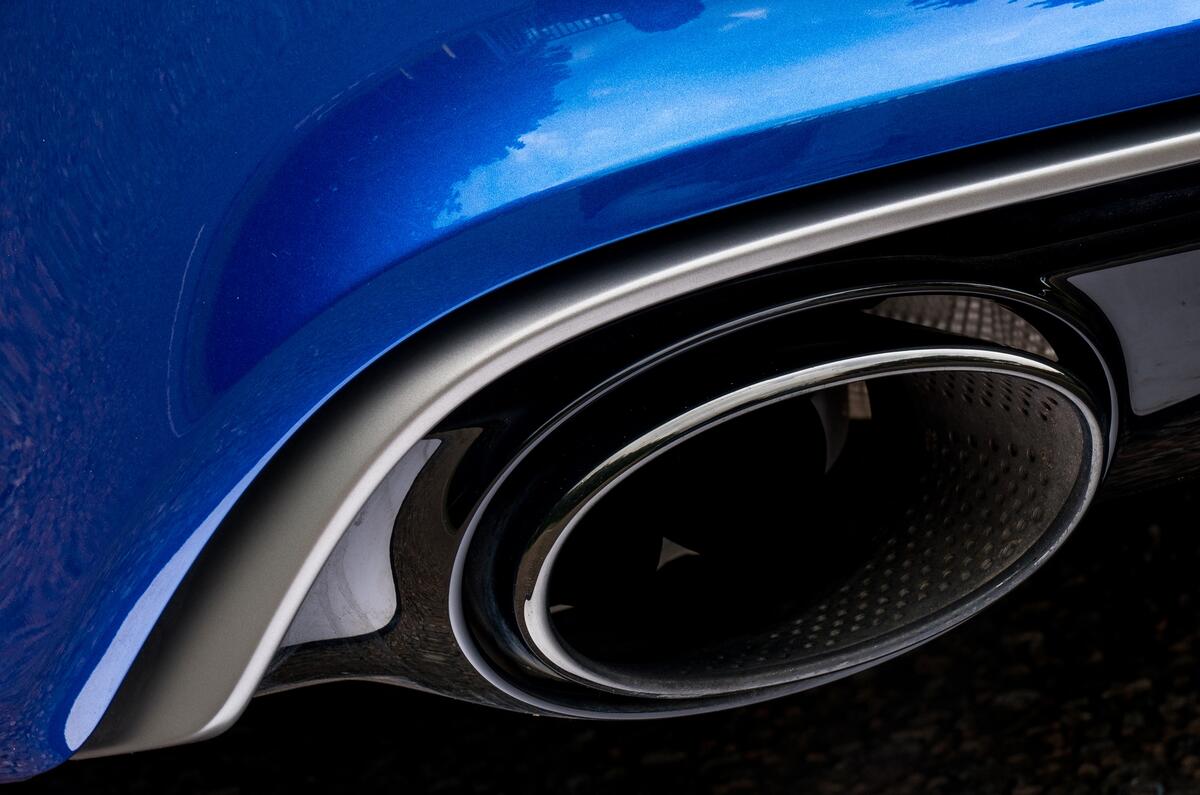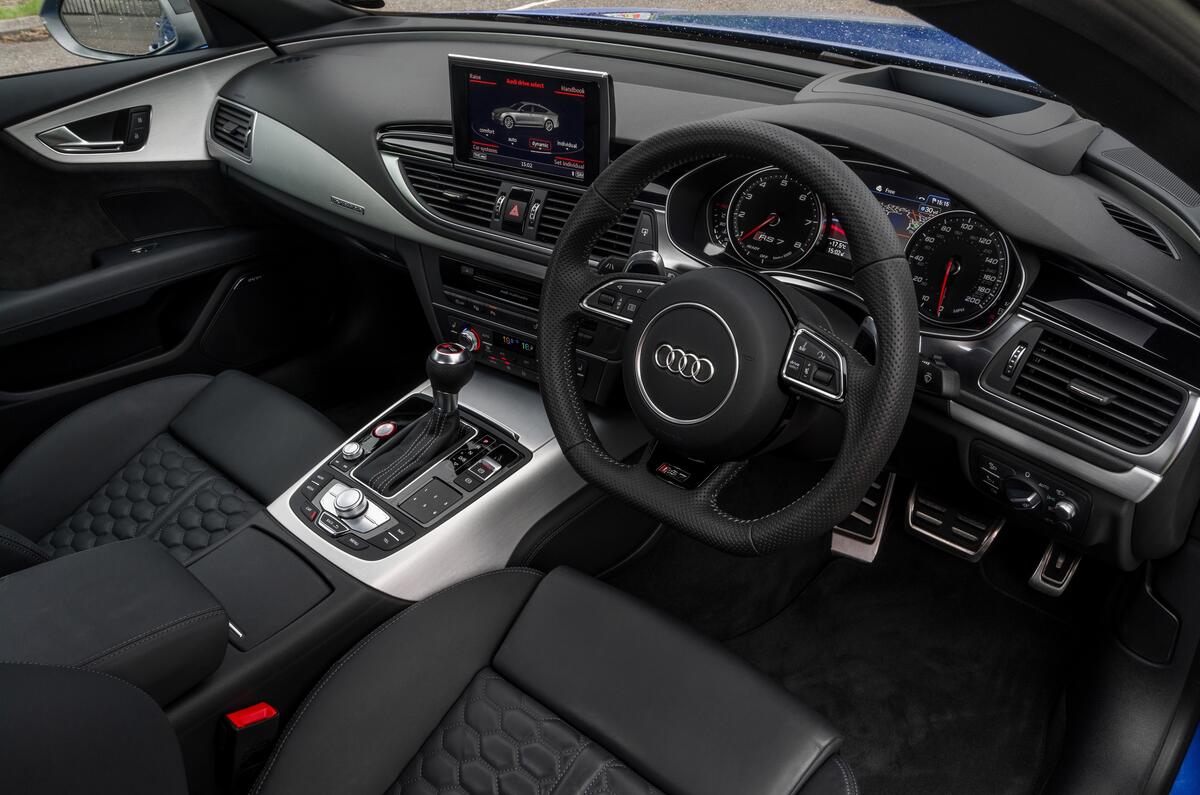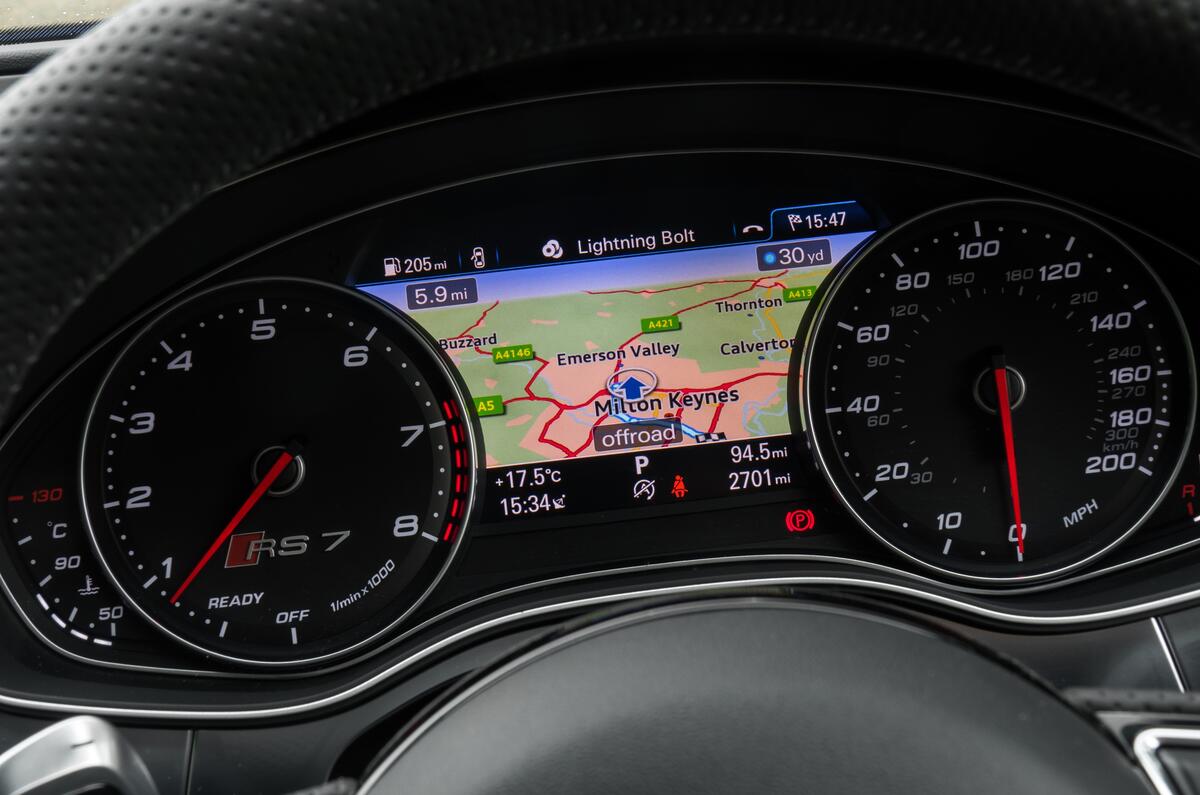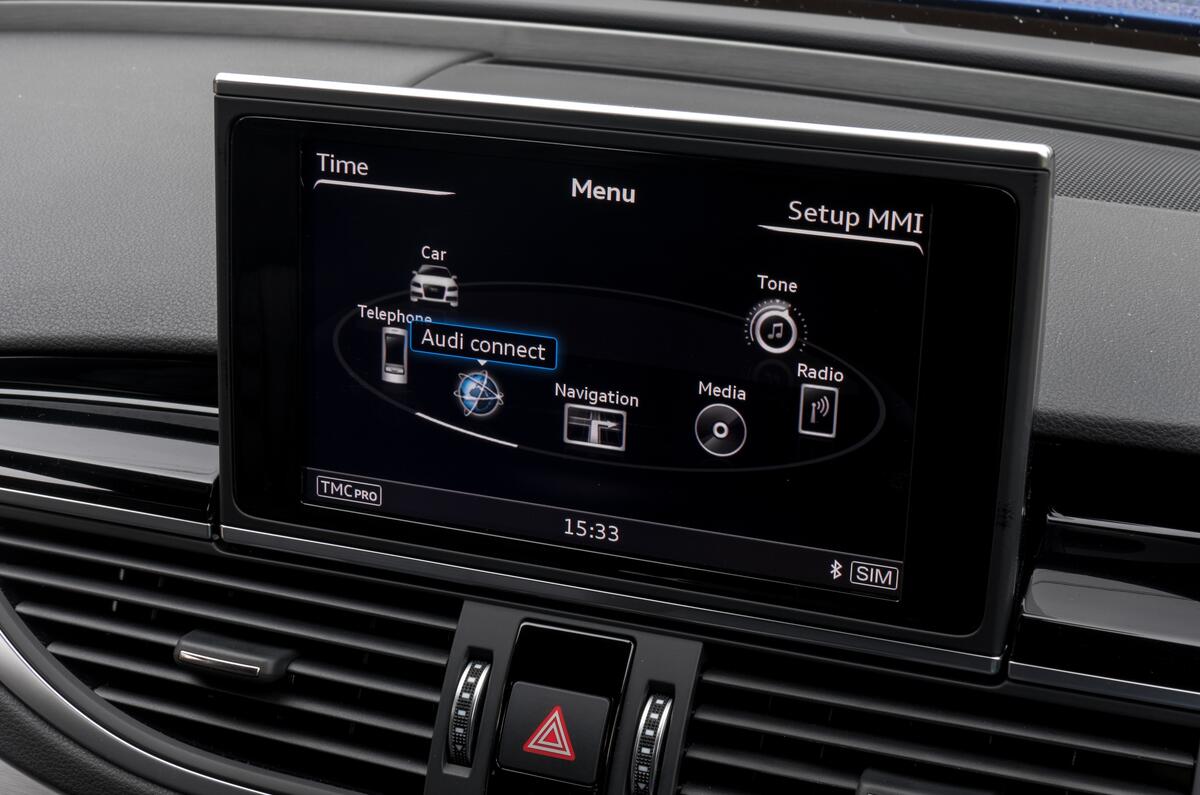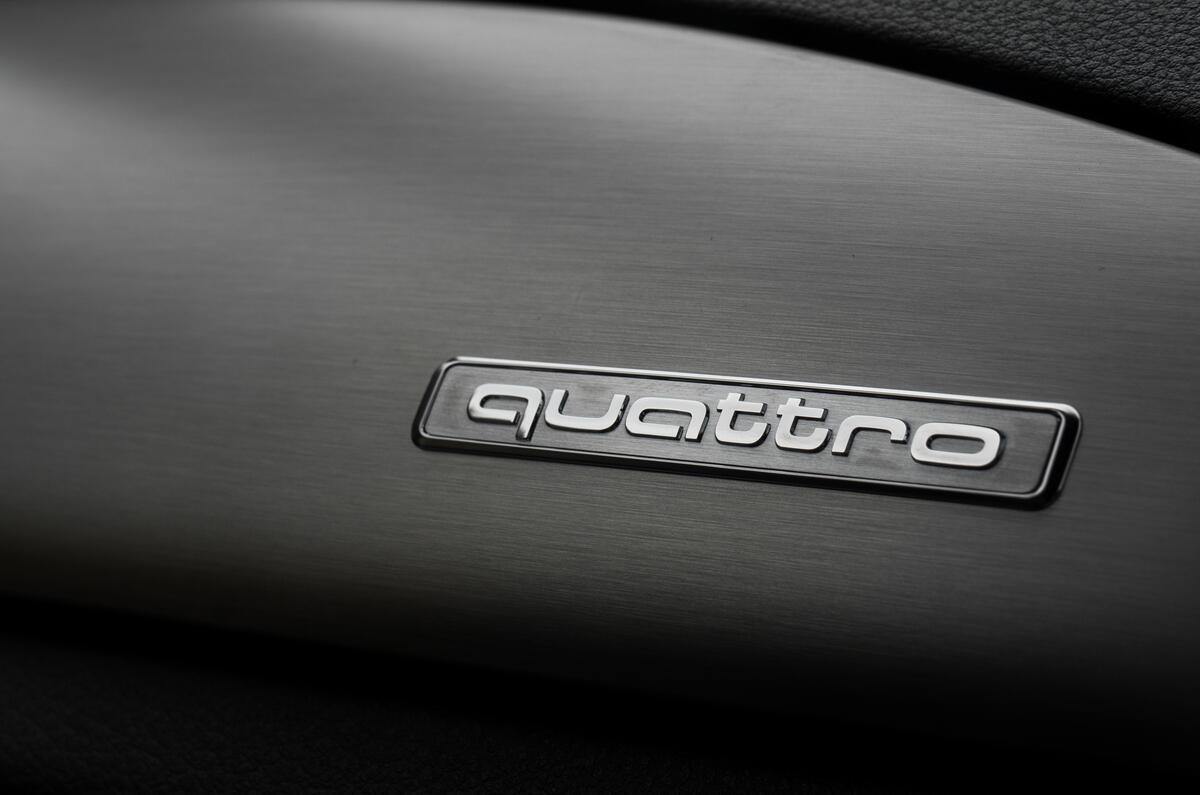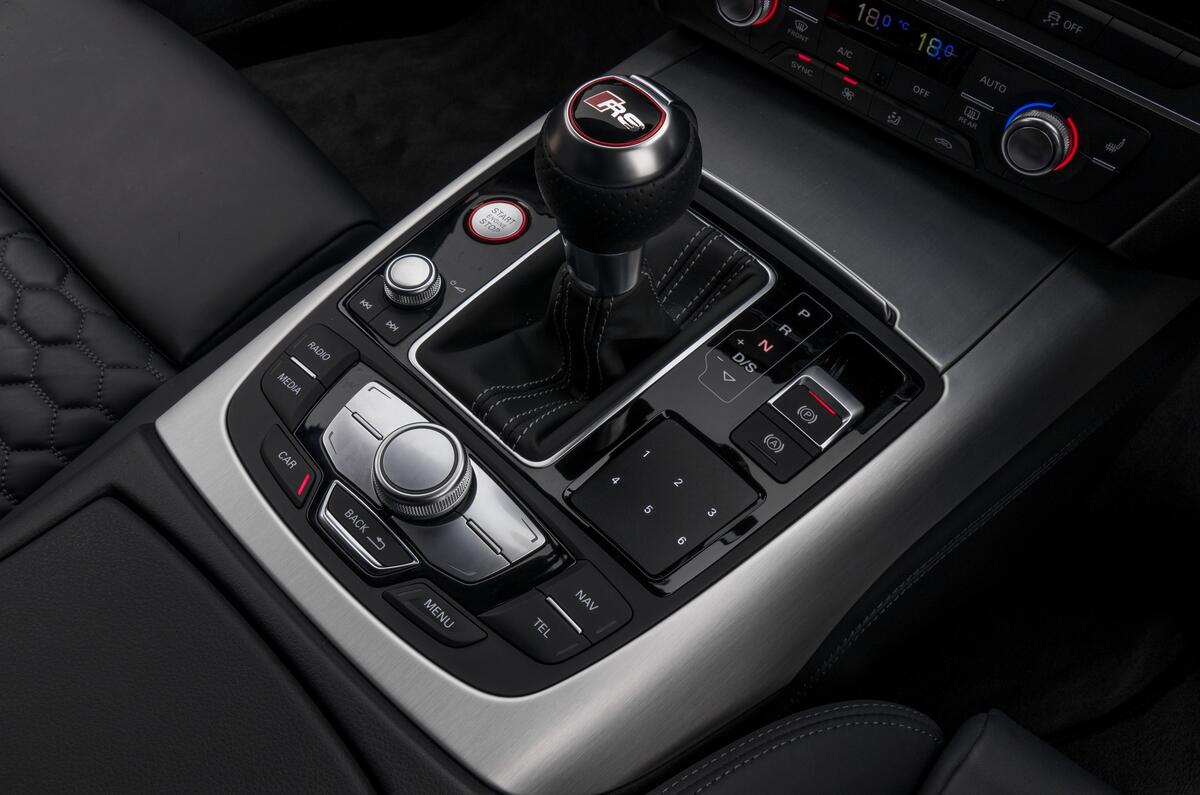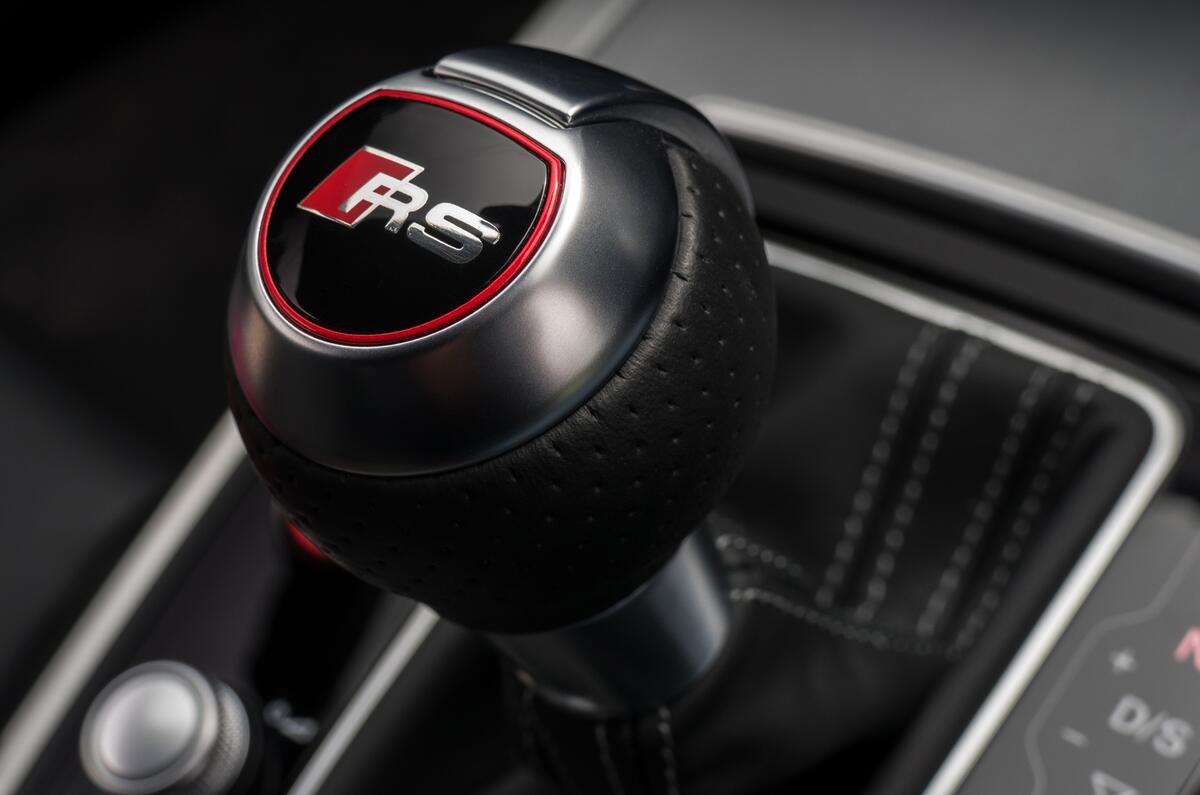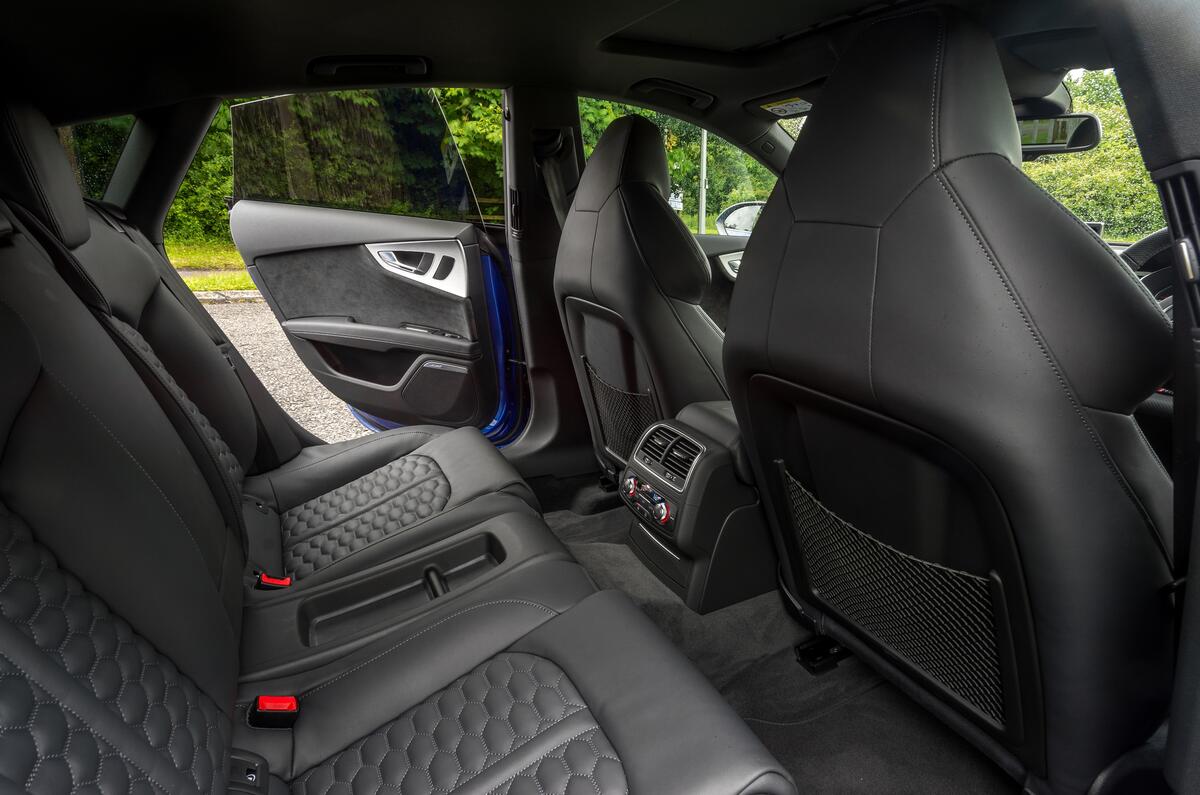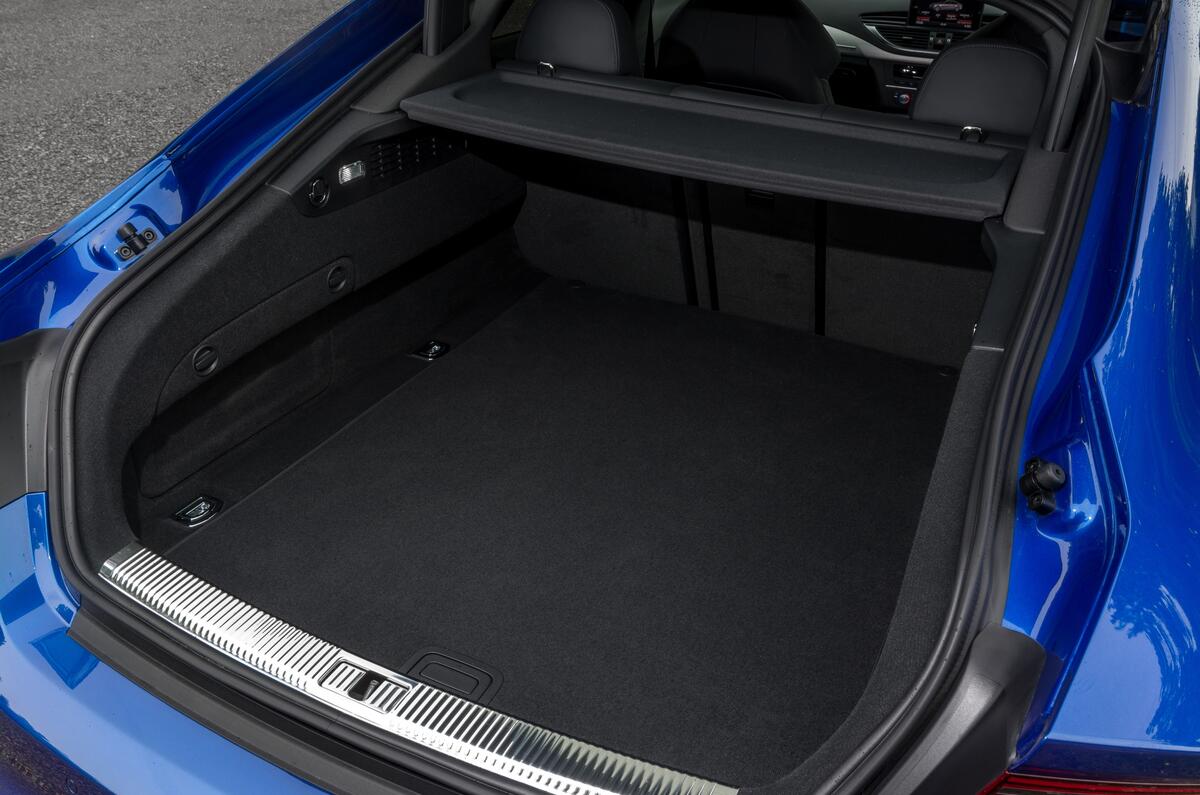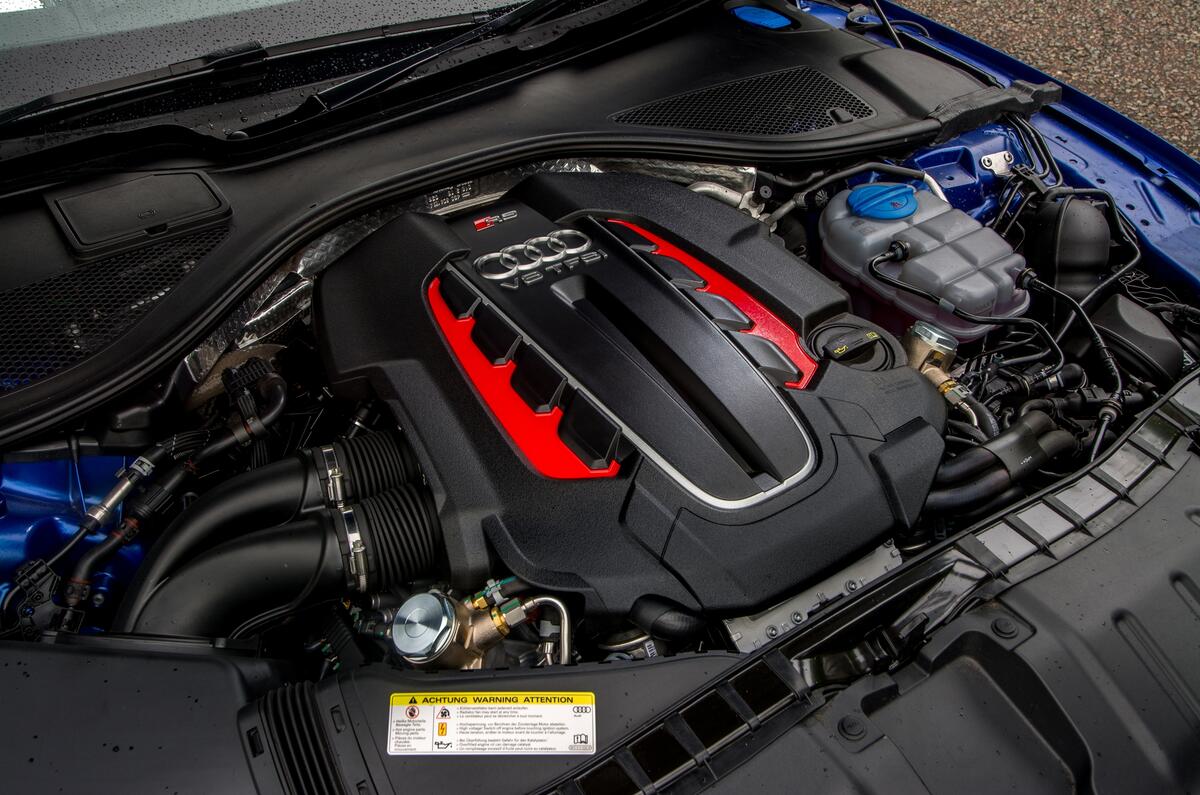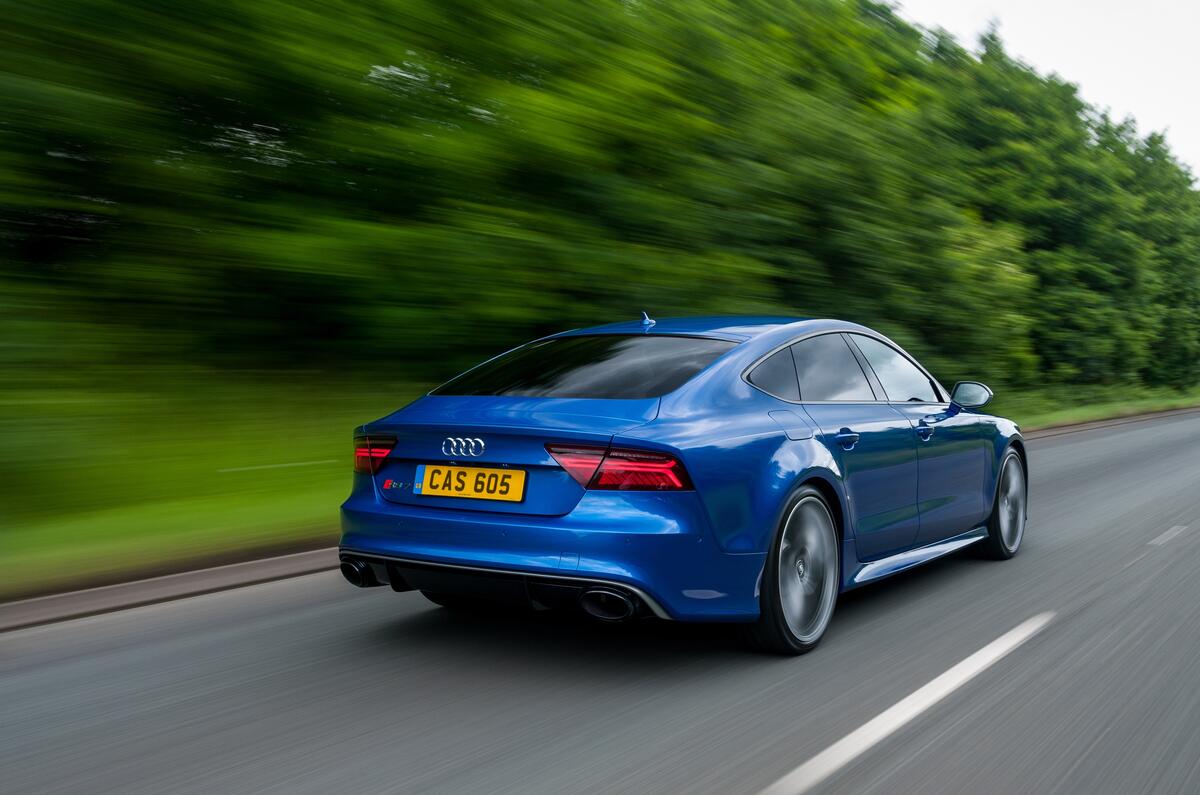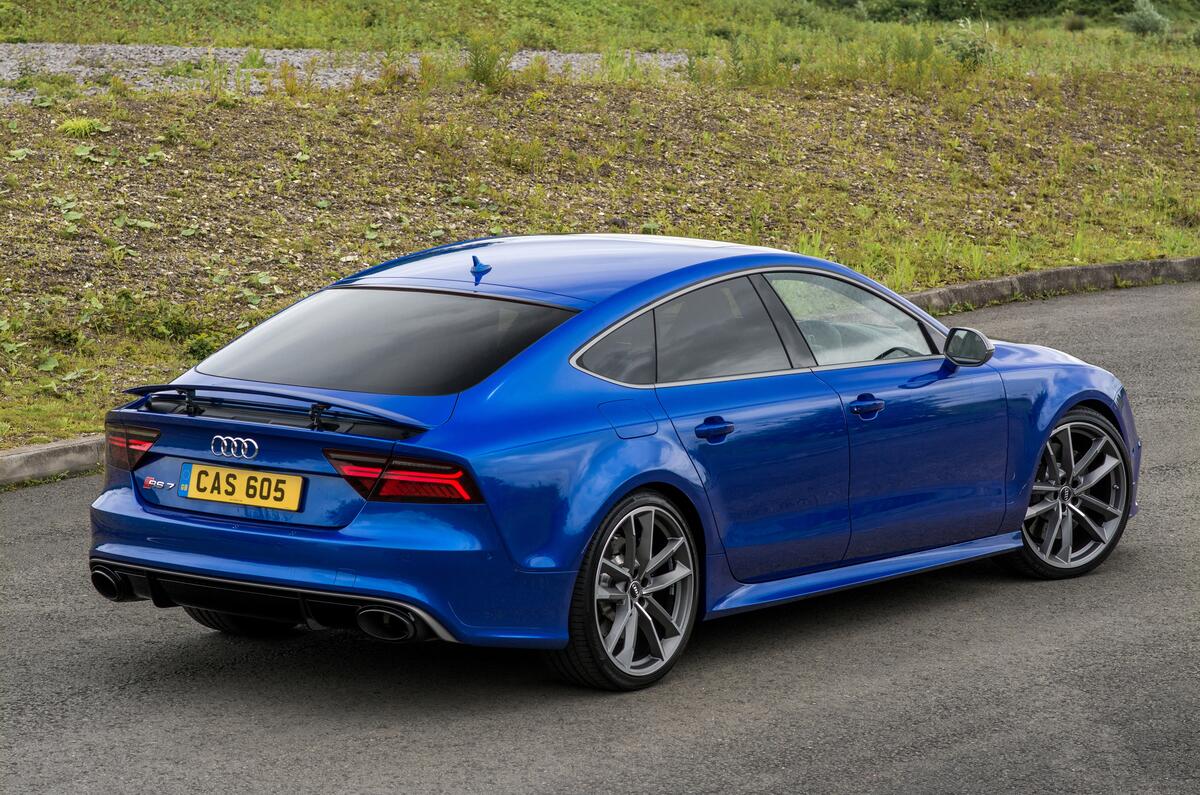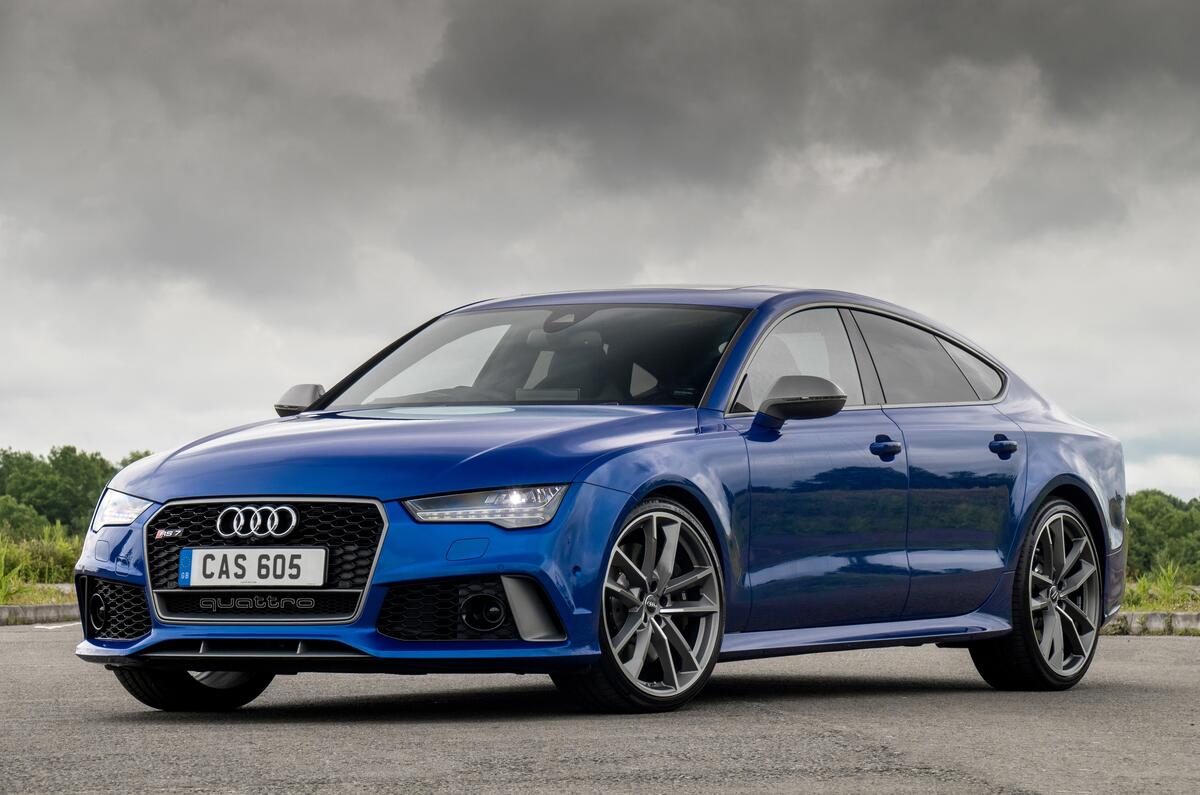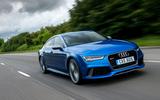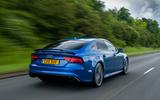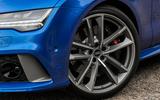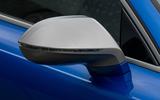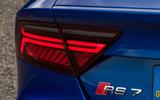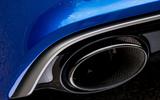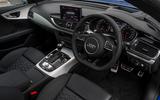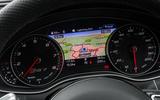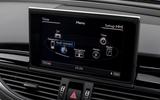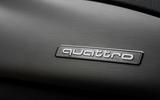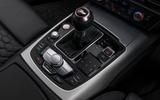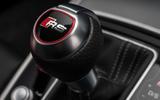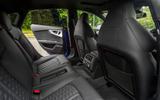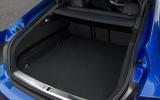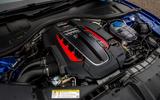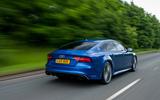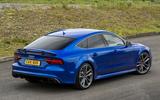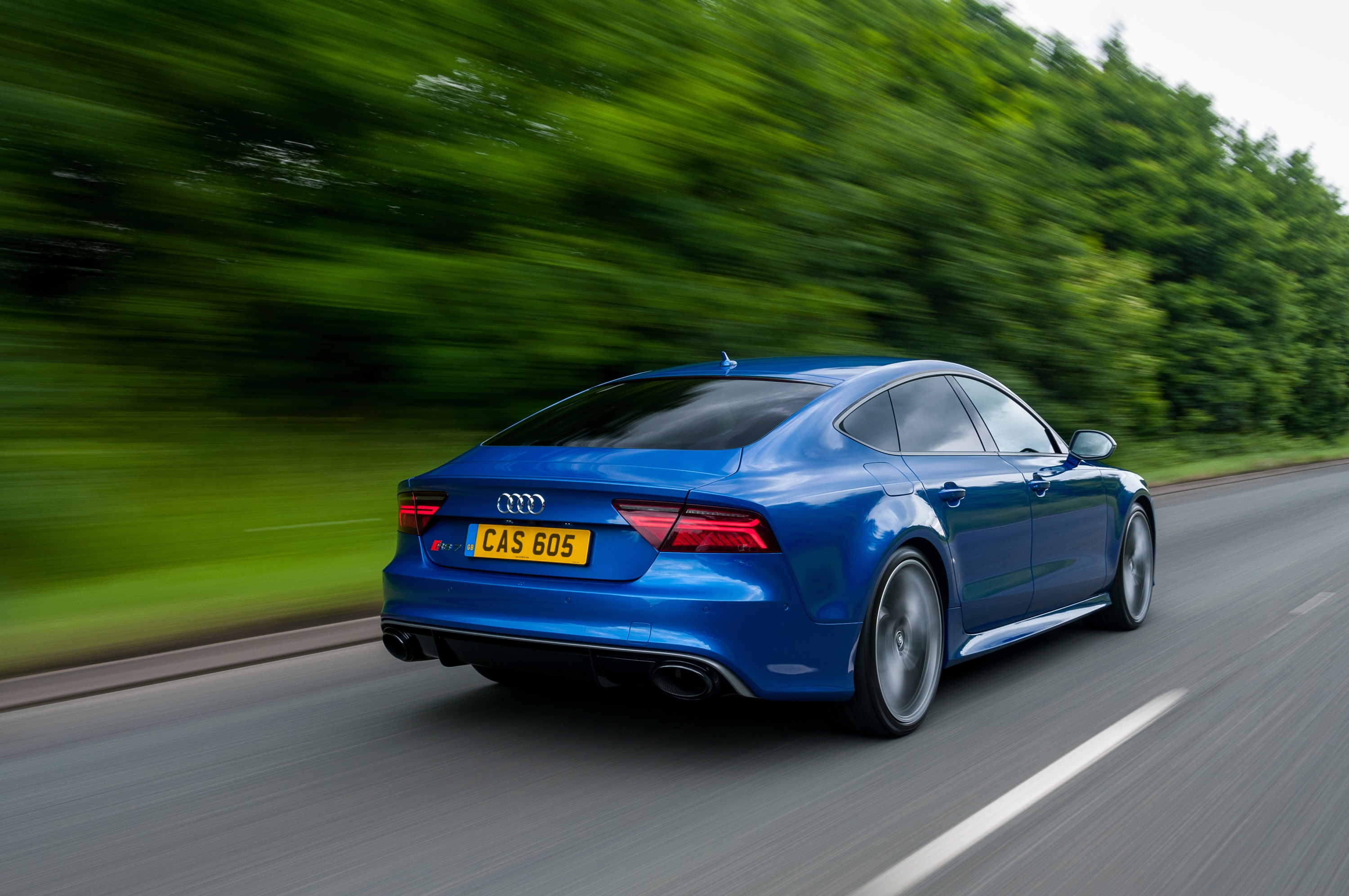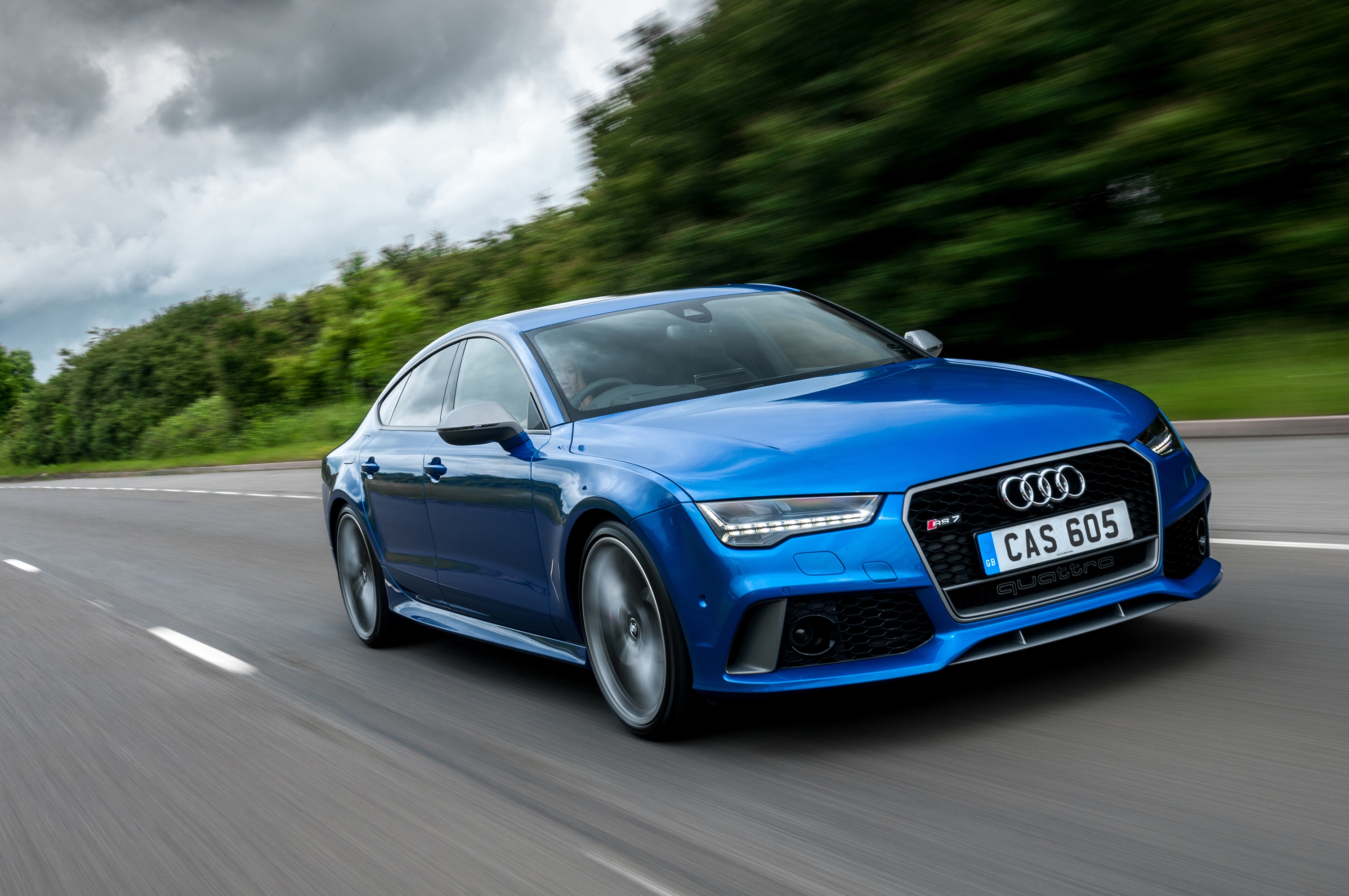Standard equipment and features on the Audi RS7 include RS body styling, 20-inch alloy wheels, Audi's 'Drive Select' system, heated electric seats, full LED headlights, a head-up display, Audi's MMI infotainment system with sat nav, Bluetooth and USB connectivity, and DAB radio, along with a Bose 14-speaker sound system, parking sensors, a reversing camera, an electric sunroof, four-zone climate control and wheel-mounted shift paddles.
The RS7 Performance models get a sports exhaust system, bigger 21in alloy wheels, a fetching leather and Alcantara interior and titanium exterior trim.
The price is tempting too, at £85,485 for the standard model. That’s considerably less than many of its rivals. The catch, however, is that the options rapidly crank the price up.
We tested a car fitted with upgrades including a sports exhaust, the ‘Dynamic Package Plus’ - which ditches the air suspension and replaces it with conventional dampers and steel springs, interconnected by a hydraulic system to reduce pitch and roll, raises the speed limiter to 189mph, adds carbonfibre-ceramic brakes and dynamic steering - and a carbonfibre styling package, all of which resulted in a total price of over £115,000. That's more than the likes of the V8-engined Maserati Quattroporte GTS.
Over 60 S and RS models have been launched since the designation’s inception in the early ’90s, and the range-topping RS line now stands at nine models strong thanks to this and the RS Q3. So, does the Audi RS7 Sportback deserve to wear the RS badge?
Well, it’s typical Audi A7 inside and anyone who’s driven a recent Audi product will feel right at home. The fact it's like an A7, however, poses a few minor issues.
Front occupants will be greeted by a large amount of cabin space, with plenty of leg- and head-room. Taller rear occupants, however, will find that if they adopt the most comfortable position in the rear seats their head will either be touching or brushing the roof. Otherwise, the rear seats are supportive and a centre folding armrest and air-con controls improve comfort further.
As standard the RS7 comes with heated, electrically adjustable sports seats that are comfortable and supportive. Thanks to myriad adjustments, a decent footrest and an electrically adjustable steering column, it’s easy to find a comfortable driving position.
Many will no doubt still find Audi’s multimedia and sat-nav system a little counterintuitive to use, since the main control dial has the opposite effect to that you might expect. Rotate it clockwise and your selection moves upwards, instead of down. Nevertheless, the system is otherwise easy to use and very capable.
On the plus side, the instrumentation is excellent and an easily readable TFT display, inset between the tachometer and speedometer, grants access to sat-nav functions and other readouts. A heads-up display is also standard, which presents a legible and bright readout in your eye line. It is also capable of displaying sat-nav directions, further reducing the need to take your eyes off the road – something that’s a distinct benefit in a car as rapid as the RS7.
Where it falls down a little is with regards to some minor details. Many of the rubberised and plastic finishes are too grey in colour and feel a little low quality. Likewise, some of the switches feel a little flimsy and don’t befit a car that costs upwards of £80,000.
Although rear space may not be the greatest, the RS7 does at least feature a large 535-litre boot that can be further extended by dropping the rear seats. It’s pleasing to see details like neatly finished plastic covers that obscure the boot’s hinges and electronic lifting mechanisms, which improves the premium feel of the Audi. No spare wheel is fitted as standard, though, which may further irk some buyers.


